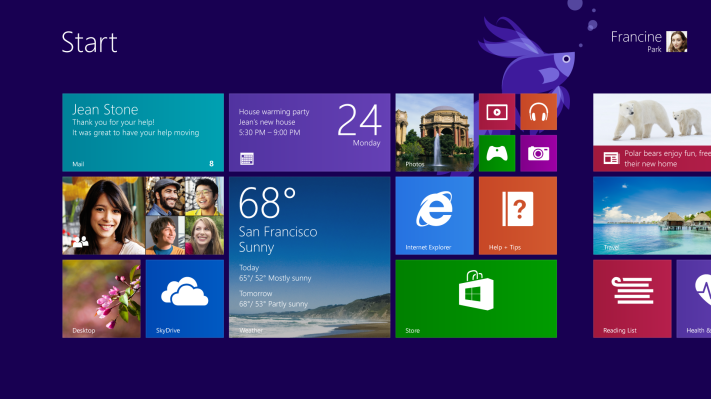Microsoft is looking at a cost conscious crisis, relative to both mobile and desktop hardware, and on the heels of the news that it might be reducing its Windows Phone software license fee, there’s new evidence that it’s looking at pursuing the same strategy for the desktop. The Verge reports that Microsoft has an experimental free version of Windows 8.1 called “Windows 8.1 with Bing.”
Windows 8.1 with Bing sounds like it’ll be a lightweight version of the full OS that focuses on bundling Microsoft apps and services in order to drive monetization through use of those, rather than through up-front software costs. This version of software would be positioned as a free (or low-cost) upgrade option for users still on Windows 7. It could also help PC makers with devices priced at under $250, which is a category that Microsoft is apparently targeting in order to help it compete with Google’s Chrome OS devices, including Chromebooks.
The nomenclature makes it sound like Windows 8.1 with Bing might be pretty heavily focused on the browser and its role as a potential platform play, so what we could end up with might look a lot like Chromebooks, in fact. This is all said to still be experimental, however, so it’s not guaranteed that it’ll ever hit the market.
Microsoft moving into platform distribution that doesn’t involve charging OEM partners licensing fees would represent a significant shift in its business, but the business models of its primary competitors pretty much necessitate the change. Google doesn’t charge anything for Android, for instance (though various license holders for tech in its use, including Microsoft, do charge OEMs to use it) and Apple has begun offering its desktop OS X software to end users for free as of the last major update.
For now, it looks like Microsoft will retain a paid tier for OS software and just offer low-cost or free options to capture more of the bottom end of the market, but if the focus shifts to software and services, we could be on the brink of a sea change that sees a larger shift to free when it comes to platform technologies.
